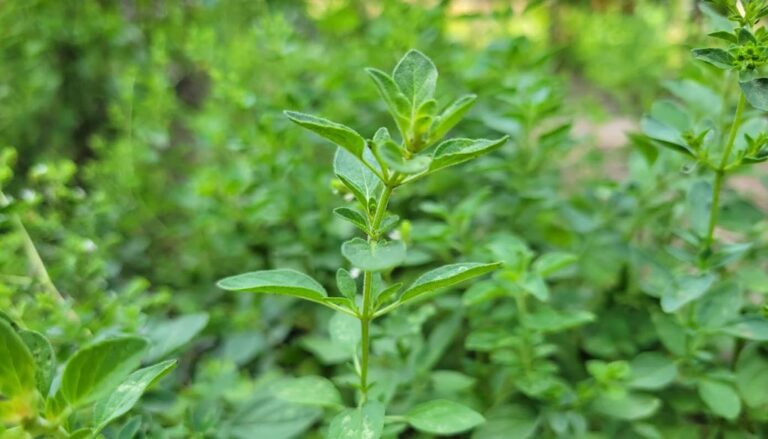This post may contain affiliate links which means I may receive a commission for purchases made through links. I only recommend products that I have personally used. As an Amazon Associate I earn from qualifying purchases. Learn more on my Private Policy page.

Companion planting with oregano is an excellent way to deal with pests and diseases in your garden.
Asparagus, beans, cucumbers, peppers, and tomatoes are all excellent vegetable companion plants that will thrive next to oregano. Additionally, herbs such as basil, lavender, rosemary, sage, and thyme complement oregano beautifully.
These companion plants create a harmonious and beneficial environment with oregano, making them great choices to enhance your garden. Let’s dig more into what makes these veggies and herbs great garden companions.
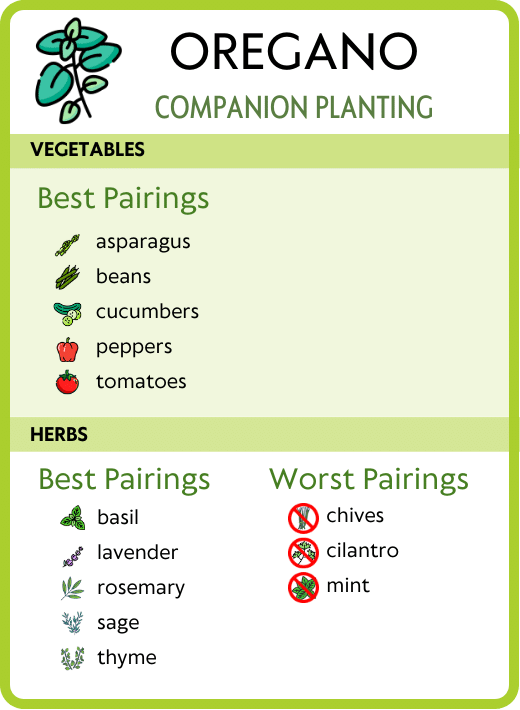
Table of Contents
Asparagus and Oregano

Oregano is a powerful ally to asparagus, naturally repelling pests like aphids and beetles. Aphids can wreak havoc on vegetable gardens, but oregano’s strong aroma is a natural repellent for aphids.
Purchase asparagus crowns from SeedsNow
Oregano’s aromatic compounds can also repel beetles. By planting oregano nearby, you can create an inhospitable environment for beetle species that invade vegetable patches and damage tender leaves and stems.
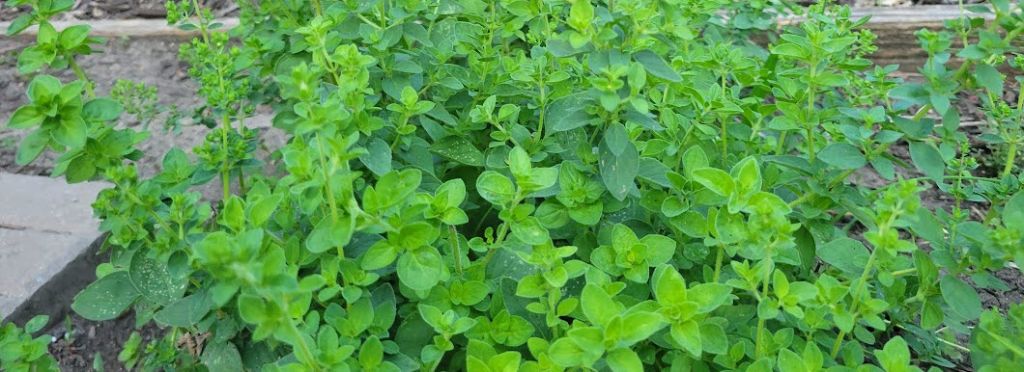
Beans and Oregano

Beans and oregano make a dynamic duo in the vegetable garden due to oregano’s pest control capabilities and bean’s nitrogen-fixing properties.
Purchase bean seed varieties from SeedsNow
Attracts Beneficial Insects, Boosts Bean Pollination
Oregano acts as a magnet for beneficial insects such as bees and predatory wasps. When you plant oregano near your beans, its flowers attract helpful creatures to visit your garden. Bees are excellent pollinators, and their presence can significantly improve bean pollination, leading to better yields.
Predatory wasps are also attracted to oregano flowers and prey on common garden pests like aphids and caterpillars. By attracting these natural predators with oregano, you create a balanced ecosystem in your garden where pest populations are kept in check.
Nitrogen Fixation: A Boost from Beans
Beans have an incredible superpower; they are nitrogen-fixing plants. They form a symbiotic relationship with specific soil bacteria called rhizobia that convert atmospheric nitrogen into a usable form for plants. This process enriches the soil with nitrogen, which is an essential nutrient for plant growth.
Beans and oregano both thrive in full sun and well-drained soil conditions. By planting them together, you create an ideal environment where they can flourish side by side.
Cucumbers and Oregano

Oregano possesses remarkable antimicrobial properties that make it an excellent companion plant for cucumbers. Oregano contains natural compounds, including carvacrol, thymol, and rosmarinic acid, which have been found to exhibit antimicrobial activity. These compounds can inhibit the growth of certain pathogens responsible for diseases like powdery mildew or damping-off fungi, which commonly affect cucumber plants.
Purchase cucumber seed varieties from SeedsNow
By strategically planting oregano near your cucumbers, you create a barrier against these detrimental diseases that could otherwise hinder their growth and productivity.
Peppers and Oregano

Oregano’s aromatic compounds naturally repel pests like aphids and spider mites, safeguarding pepper plants and promoting healthier growth. Its flowers are also a magnet for beneficial insects such as bees, butterflies, and parasitic wasps. Bees ensure successful pollination, leading to increased pepper fruit production, while parasitic wasps act as warriors against garden pests, seeking out aphids and caterpillars to control their populations.
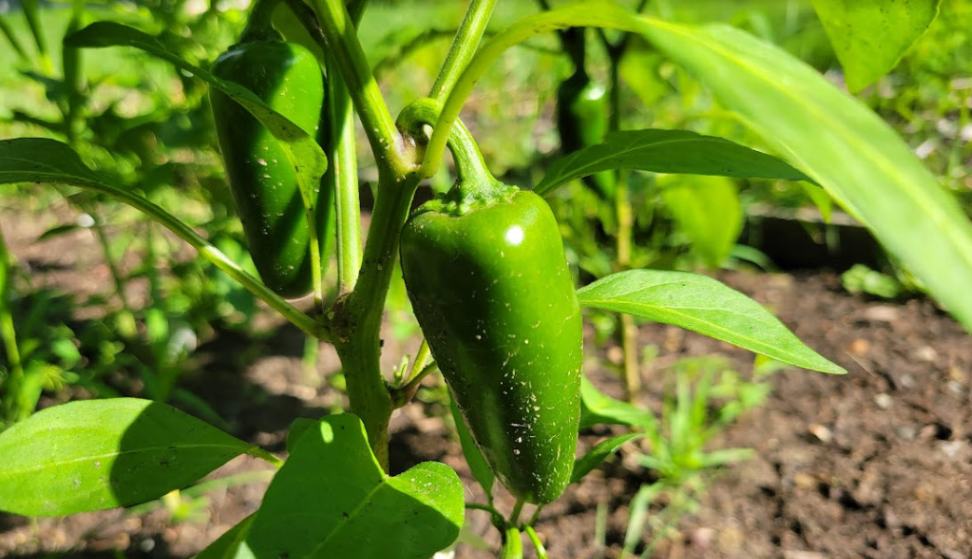
Purchase pepper plants from Amazon or pepper seed varieties from SeedsNow
Oregano’s Disease Prevention Properties
In addition to repelling pests and attracting beneficial insects, oregano offers disease-fighting properties that can benefit your pepper plants. Oregano contains compounds with antimicrobial and antifungal properties, which help protect plants from certain diseases and fungal infections.
This is particularly useful in regions with humid climates or areas prone to specific plant diseases. By planting oregano near your peppers, you create a natural barrier against pathogens that could harm your plants.
Weed Control and Moisture Conservation
Oregano can act as a ground cover, shading the soil around pepper plants. This helps reduce weed growth, saving you time and effort spent on weeding.
Furthermore, oregano’s dense foliage helps conserve moisture in the soil by reducing evaporation. This can be especially beneficial during hot summer months when water conservation becomes crucial.
Tomatoes and Oregano

Tomatoes and oregano naturally complement each other in the garden, providing benefits such as disease prevention and natural pest control.
Purchase tomato plants from Amazon or tomato seed varieties from SeedsNow
Tomato Disease Prevention with Oregano
Tomatoes are prone to various diseases, such as blight and powdery mildew, which can significantly reduce their productivity. Oregano’s natural antifungal properties that can inhibit the growth and spread of fungal pathogens. By planting oregano nearby, you can help minimize the risk of these diseases.
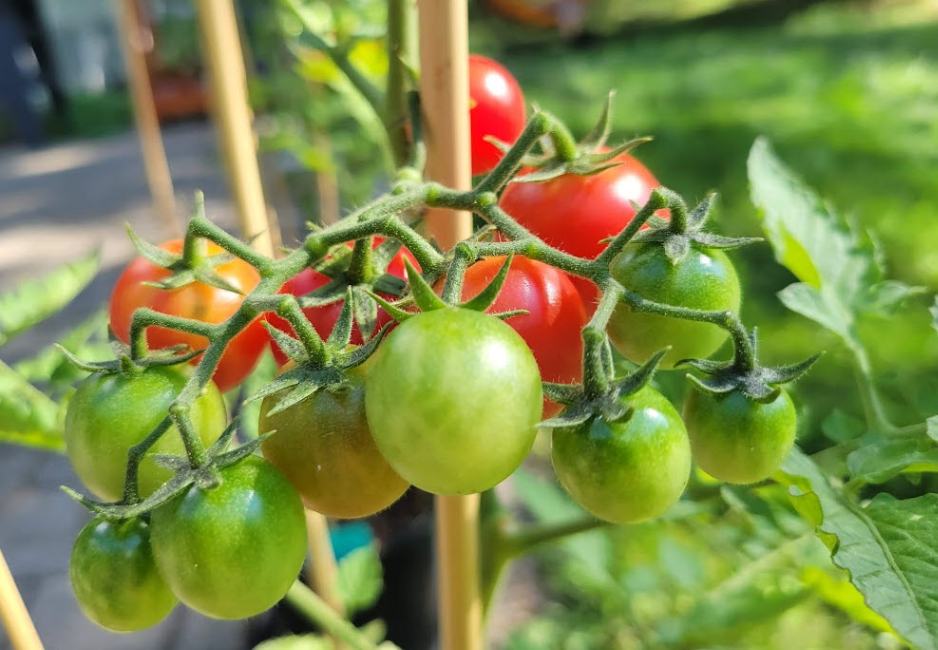
Tomato Pest Control with Oregano
One of the greatest advantages of planting oregano near tomatoes is its ability to repel pests. Oregano has strong aromatic properties that act as a natural deterrent for common garden pests like aphids, spider mites, and tomato hornworms. By planting oregano alongside your tomato plants, you can naturally repel these pests.
Oregano also attracts beneficial insects to your garden. Bees and butterflies are essential pollinators that contribute to improved fruit yields and healthier tomato plants.
Ideal Herb Combinations with Oregano
There are several herb companions for oregano that can enhance your garden’s growth and overall health. Let’s explore some ideal herb garden combinations with oregano and discover why they make such great garden partners.
Basil and Oregano as Garden Companions

Basil and oregano are considered good garden companions due to their pest-repelling properties and the disease resistance differences they bring to the garden. Together, they create a natural defense against pests, reduce the risk of widespread disease damage, and attract beneficial insects and pollinators, making them beneficial when grown together.
Purchase basil plants from Amazon or basil seed varieties from SeedsNow
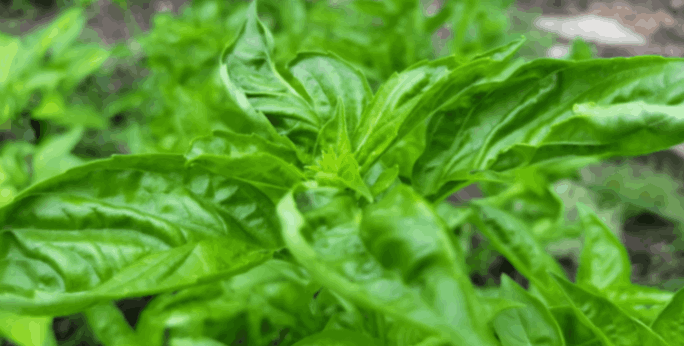
Lavender: Aromatic Allies for Pollination

Lavender’s strong fragrance acts as a natural repellent against pests that commonly affect oregano, helping to protect the herb from potential infestations. Lavender and oregano share similar growing conditions, requiring well-drained soil and ample sunlight, making them compatible companions in the garden.
Purchase lavender plants from Amazon or lavender seeds from SeedsNow
Rosemary: Visual Appeal and Flavor Enhancement

Rosemary and oregano prefer similar growing conditions, including well-drained soil and full sun exposure. Moreover, rosemary possesses a strong aroma that can act as a deterrent for certain garden pests, helping to prevent them from damaging oregano plants.
Purchase rosemary plants from Amazon or rosemary seeds from SeedsNow
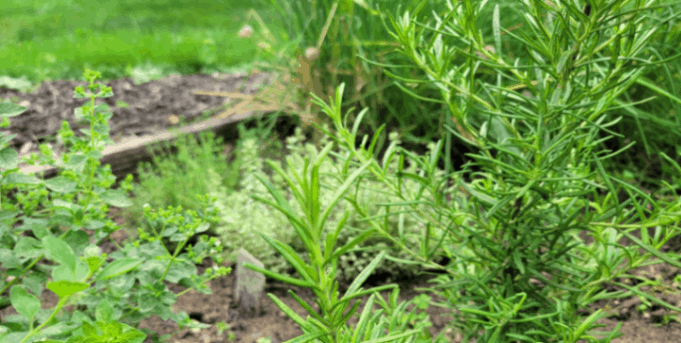
Sage: A Natural Pest Repellent and Pollinator Magnet

Sage is a valuable companion plant for oregano due to its pest-repellent properties. The strong scent of sage acts as a natural deterrent for a wide range of pests that can potentially harm oregano, including cabbage moths, carrot flies, and slugs.
Purchase sage plants from Amazon or sage seeds from SeedsNow
Thyme: Complementary Herbs Thriving Together

Thyme and oregano have similar growth habits, making them excellent companions in the garden. When companion planting with thyme, it acts as a natural ground cover, suppressing weed growth while conserving moisture in the soil. Furthermore, thyme’s aromatic properties contribute to pest control by repelling insects that could potentially damage both herbs.
Purchase thyme plants from Amazon or thyme seeds from SeedsNow
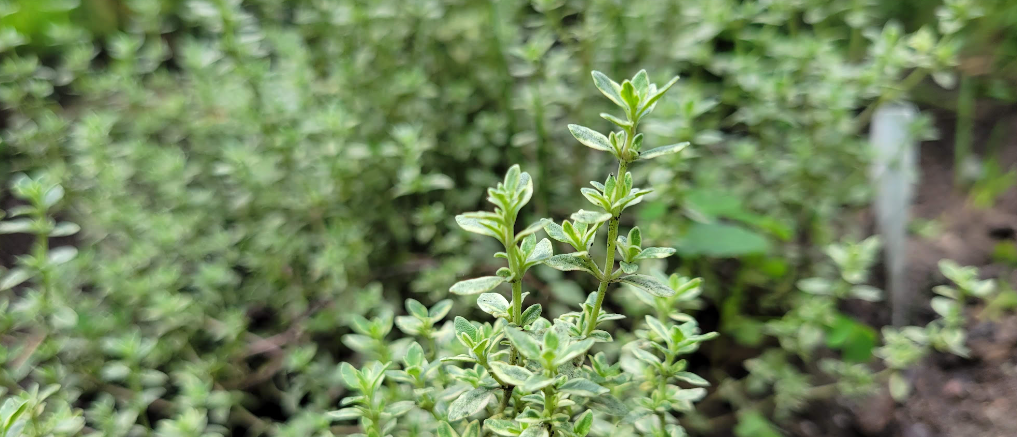
Incorporating these herb combinations with oregano in your garden not only enhances its growth but also creates a visually appealing space filled with delightful scents and flavors.
What Not to Plant with Oregano

Chives: A Poor Companion for Oregano
Chives and oregano have different growth habits and cultural requirements that can lead to competition for resources and inconsistent growth patterns if planted together.
While chives prefer moist soil, oregano thrives in well-drained soil and full sun. This difference in preferences can create a challenging environment for both plants.
To ensure healthy growth for both herbs, it is best to plant them separately or provide separate growing conditions within the same garden bed. By doing so, you allow each herb to flourish without hindering the other’s development.

Cilantro: A Short-Lived Companion
Cilantro and oregano are not considered to be good garden companions. Cilantro has a relatively short lifespan relative to other herbs, and tends to bolt quickly, meaning it goes straight into seed production mode.
This rapid bolting process can overshadow the growth of oregano nearby. As cilantro focuses on producing seeds rather than leafy foliage, it may steal nutrients and sunlight from neighboring oregano plants.

Mint: An Invasive Rival
Mint is notorious for its invasive nature and ability to take over garden beds with lightning speed. The aggressive growth of mint can quickly overshadow the oregano, depriving it of much-needed sunlight and nutrients.
To prevent mint from choking out your oregano and other herbs, it is best to plant mint in containers or designated areas away from the rest of your garden. This containment strategy will help maintain control over the invasive tendencies of mint while allowing your oregano to thrive without competition.
Remember that oregano prefers drier growing conditions, so avoid planting it near plants with heavy watering requirements. By ensuring proper spacing and considering the specific needs of each herb, you can create an environment where your oregano can flourish alongside compatible companions.
Conclusion
Incorporating oregano into your garden as a companion plant can have numerous benefits for the overall health and productivity of your plants. By strategically placing oregano alongside other vegetables and herbs, you can create an environment that naturally repels pests and diseases, eliminating the need for harsh chemicals or expensive treatments.
Oregano’s antimicrobial and antifungal properties make it an excellent ally in the fight against garden pests and diseases, while its ability to attract beneficial insects enhances pollination and creates a balanced ecosystem. Furthermore, oregano’s compatibility with a variety of vegetables and herbs, such as asparagus, beans, cucumbers, peppers, tomatoes, basil, lavender, rosemary, sage, and thyme, allows for harmonious growth and mutual benefits.
By harnessing the power of oregano companion planting, you can create a thriving garden that not only provides you with an abundant harvest but also contributes to a sustainable and environmentally friendly approach to gardening.
Frequently Asked Questions (FAQs)
Can I Plant Oregano and Tomatoes Together?
Tomatoes and oregano are excellent garden companions. Oregano provides disease prevention with its antifungal properties and acts also as a natural pest repellent for aphids, spider mites, and tomato hornworms.
Can Oregano be Planted with Cucumbers?
Oregano’s antimicrobial properties make it an excellent companion plant for cucumbers, creating a protective barrier against diseases and ensuring the well-being and productivity of the plants throughout the growing season.
Can Peppers and Oregano Be Grown Together?
Oregano acts as a natural protector for pepper plants, repelling pests, preventing diseases, conserving moisture, and controlling weeds, making it an excellent garden companion to pepper plants.
What Herbs Does Oregano Grow Best With?
Oregano grows well with basil, lavender, rosemary, sage, and thyme. These companion herbs offer various benefits such as pest-repellent properties and attracting pollinators, ultimately promoting the overall health and productivity of the herbs.
Can I Plant Oregano with Beans?
Oregano attracts beneficial insects and boosts bean pollination, while also benefiting from the nitrogen-fixing capabilities of beans, creating a mutually beneficial relationship that enhances the growth and health of both plants when grown together.
Is There Anything That Should Not Be Planted With Oregano?
While there are very few garden plants that are considered garden adversaries to oregano, it is generally recommended not to plant oregano with chives, cilantro, or mint due to incompatible growth habits and potential competition for resources.
Last Updated on 28 April 2024 by Bob Lee

